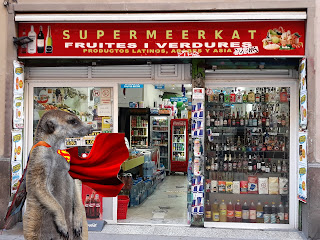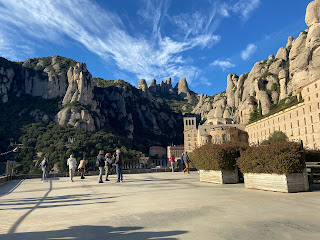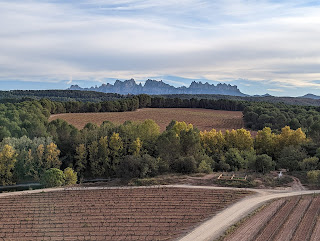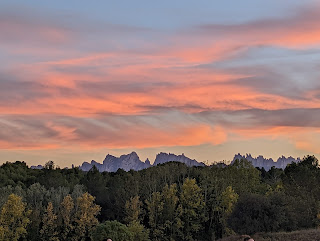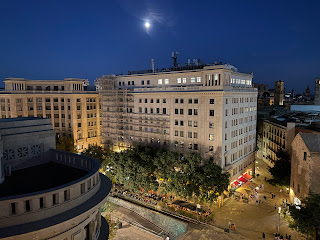Tucker Mythology
How Not to Plan a Rafting Trip
When I was twenty, a man of experience with adult tasks according to my peers, I invited a bunch of friends to go rafting.
I'd organized rafting trips on the Youghiogheny river five times before. We always took at least two cars, one to park at the launch site and another to park where we would leave the river. We rolled out of my driveway at about seven in the morning because it was a four hour drive from Darnestown to Ohiopyle, where we could rent the rafting equipment and launch. When our caravan drivers were fast enough, we could cut the trip to three and a half hours. Once, I'd gotten onto the river as early as 10:15.
In June 1983, though, not enough of my friends would commit to making the trip. In particular, we had no one as the second driver. We absolutely had to have two cars at a minimum. In a way, it was a relief. I knew this year was supposed to be different.
On my last trip during the summer before, the Ohiopyle Outfitter company told me that I could no longer drive up and get on the river without calling ahead. In fact, I was already supposed to have done it.
"You have to reserve a spot on the river?" I said to the young man at the register of the sales kiosk. That seemed preposterous. It was a public river, after all.
"It's a state park service rule."
"The river is run by the park service?" I put my left hand on my head as I tried to understand.
"It's always been in their control, man." The young man shifted his feet. He nodded, which made his blonde, curly hair bounce. His body was the thin but strong type. He pointed to one of the river maps. Sure enough, at the top it said Ohiopyle State Park. I'd been looking at it for years without really reading it. "I'm gonna let you go on the river this time. But you gotta know. The river banks are part of the park. Ten years ago, the park service started charging everyone. Before that, we all just went."
"Yeah, I paid their fee before." I'd hardly noticed it. When he reminded me, though, the park population controls made some sense. There had always been a charge for entering the river at Ohiopyle. I had always paid it separately from the rafting equipment rentals. And in a literal sense, there had to be a limit to the number of people who could use the park at the same time. I would have liked to double the traffic for my own selfish reasons but the park service disagreed.
"Well, now they say you have to make a reservation. We've been putting too many people on the river. They're cutting us back."
"Shit. What if you reserve your time and it turns out to be during a thunderstorm?"
"Yeah." He raised an eyebrow as if he hadn't thought of that situation. "It's going to be a problem."
That's where I'd left it the summer before. This time, even though I couldn't get enough people to go with me, I gave Ohiopyle a call to see if I could make a reservation and cancel. That would let me hop on at the last minute if things changed.
"You can't," said the woman at the other end of the line, a park employee.
"You mean I can't get my money back? I have to pay up front?"
"No," she explained. "You can't make a reservation. The river is full up."
"How about the next Saturday?"
"Saturdays are the worst," she said. "You can't get on the river on a Saturday until ... hmm, the middle of August."
"But it's barely June!"
"Like I said, going on a Saturday is the worst."
"At least all my friends are cancelling."
"Do you want to make a reservation for August?"
"Yeah." It wouldn't do me any good. "I guess?"
Despite my misgivings, I let her sign me up for eight paddlers. I had to pay per individual but I knew I wouldn't have to follow through. The park service only charged for getting onto the river, so I wasn't committing any money, just saving a few spots I wouldn't use. Once we reached the second half of August, it would be too difficult to get friends to come along. Plus the river would be too low. It always was at that time of year. And we would come up against late summer thunderstorms.
A couple weeks went by without me doing any more trip planning. I was taking it easy, working day to day, and hanging out with an old girlfriend. Sometimes, a group of us would hit an arcade. Adam or Tucker or someone else in our circle of friends would want to play minigolf, see a movie, or hang out in a bar.
"Hey, Eric," Tucker said when he got me on the phone after work. "Are we still going rafting?"
"Can't see how. We never got enough people."
"Well, Liz wants to go rafting."
"She does?"
"You've got to put that trip together on the weekend after next."
"Hah." I knew there was no chance.
"That's the date you told me, man."
I had said it. Now, with Adam, Tucker, and a couple more friends saying yes a bit too late, we had nearly enough to go. But we had no reservation with the park service.
Later that evening as I avoided thinking about apologizing to everyone, I got another call. An old lifeguarding friend, Beth, launched into a description of her rafting trip needs and wants, including how she wanted to bring her sister Jennifer on the trip.
"You're saying yes to the rafting trip," I said, sitting up. With a thrill of anxiety, I realized I had never phoned Beth to cancel. A few others, yes, but not her.
"So yeah," she continued. "My sister and my boyfriend, too."
"We don't have a second car," I announced with a feeling of relief. That meant we couldn't do it and I could close this all down with a bare minimum of grace. At this point, it was looking like Chevy-Chase-falling-down-the-stairs grace but okay, I'd still be fine.
"Oh, I'll drive," Beth said.
"Oh." Shit.
"You'll have to take another passenger," I told her. "Maybe two."
"I thought we were only bringing eight."
"Jeez." I did the math. "Now it's ten."
"Eh." She gave me a cheery laugh. "We'll squeeze in. We're friendly. Now, do I have to tell you not to make passes at my sister?"
"No, ma'am." I was thrown by the change of subject.
"And don't drive as fast as last time."
"All right, sure."
She told me the rest of her expectations and conditions. Then she hung up. As I stood by the phone, I realized that with friends like Adam, my brother Dylan, and our new additions to the guest list, we had a trip. What's more, we had a date and a promise. What we didn't have was a corresponding set of reservations on the river according to the state park.
There was no way to get that. I doodled notes to myself. I'd created a rafting trip that shouldn't exist. After a while, I picked up the phone again. I called to make equipment reservations. Those wouldn't get us on the river but we needed them if we got on. They committed our money, for sure.
How many reservations did visitors cancel each day? Could I count on the park service or someone else letting us onto the river without designated spots? They sounded a lot tougher on the phone than they'd been the year before.
I looked at my guest list some more. I wasn't going to tell everyone this was impossible. Instead, I started to form a plan.
It was a simple plan.
The park logs would show I'd made a trip and canceled. The staff would guess there had been some mistake. We would have driven a couple hundred miles. They would feel obligated to let us on the river, wouldn't they? Someone else who had made plans for that day would have canceled to leave an open spot. Or not. We had to lay some guilt on the staff. I couldn't do it myself because I was the guilty one and I knew it. I'd never manage it. Someone else had to talk them into letting us launch.
"We're ready," Tucker announced on the morning of the trip day.
"Why don't you take shotgun?" I said. That was part of the plan.
I put my best friend up front with me for a reason. Over the course of a few hours with a cup of coffee usually in hand, we talked about everything under the sun, as usual, and I made sure we agreed on the plan once we got to Ohiopyle.
At a pit stop for gas, I made sure Beth understood, too.
"At this rate, we'll get there just in time," I said. Beth and her boyfriend had strolled over while they made her sister pump their gas. "Everyone needs to get everything out of the cars pretty fast. Then I need Beth to follow me. I've got the bigger car. I'll drive it down to the take-out point. That means we'll cram in like crazy for the drive back. But it's only two miles."
"Or we can make a couple trips."
"Or that," I agreed, knowing it never happened that way.
"Meanwhile ..." I gestured to Tucker.
"While you do that," Tucker said, "I grab all the tickets and equipment rentals."
"So we have to give Tucker the cash." I pointed everyone in Tucker's direction. He held out open hands. I'd already had my money out and ready for him, so I put it in his palm to show everyone a good example.
"Wait," Beth laughed. She turned on Tucker. "We're going to give you our money? Really?"
"Well, I won't lose it between here and the park office." He sounded slightly aggrieved.
"Hah."
This was an important part of the plan. Tucker had agreed to take his girlfriend, Liz, with him to the state park desk. I knew she was the right person to make the guilt trip work on the staff there. Meanwhile, I thought Beth was too sharp and, mostly, too honest. If she were there, she'd rightly blame me. I needed to have her trail me to the pick-up site. That put the right personalities in the right places.
The only last-second change came when Beth asked her boyfriend to ride along with her. I hadn't figured him for helping with the park staff anyway, so his absence would have no effect.
As I left, the remaining people in our party were handing over their money to Tucker and Liz. We were all young and poor and some of our rafters felt reluctant to part with their twenty bucks. It took a while.
"Make sure he takes care of the details," I told Liz as I got into my car.
"Oh, I will," she replied.
With a suppressed flash of guilt, I moved the stickshift into gear. I hadn't known Liz for long. Nevertheless, I'd seen her cry half a dozen times. She was someone who got teary-eyed whenever she saw a sad puppy. Now I was using that aspect of her personality. Her emotional, empathetic traits were going to combine with Tucker's rational, talkative, persuasive qualities to get us onto the river.
The drive to the take-out point was a long one flanked by young birch trees and raggedy-looking spruce. Although it was only a few miles, the speed limit was fifteen and, unlike on most roads, the limit was sort of an ideal that you couldn't achieve for long without spinning from the gravel into a tree. At times when I thought of gunning it on a straightaway I glanced back to Beth and her boyfriend. Leaving them behind was something I couldn't do unless I wanted to walk back.
On the return drive, Beth and her boyfriend talked about rafting, camping, hot tubs, and more. Their devotion to the topics drove away my worries. I started looking forward to hot-tubbing. When we reappeared in the main parking lot, I was as surprised as anyone about how quickly Tucker and the others approached.
"Dude, they canceled your reservation." Tucker said. He fumbled through a small stack of papers. He found what he was looking for. He handed me a set of tickets. "It was really a pain in the ass."
"But we're getting on the river, right?" One of my tickets said Ohiopyle State Park. We were in.
"Yeah. They couldn't find you in their database at all. Well, not at first. Then they did, sort of. But it was all messed up. They said we couldn't go. We drove four hours and everything."
"You told them that?"
"When I did, geez, Liz broke down and cried." He glanced to his girlfriend, who was describing her ordeal to Beth. "I mean, she was really bawling. So they let us on."
"Wow." I shrugged, feeling sort of guilty, sort of impressed.
"I kind of think they did it just to get her out of the office."
"Well done," I replied. Tucker gave me side-eye for a second. I hadn't sounded very surprised.
#
There will never be enough time to talk about all the sketchy things I did but a lot of them were like this one. Even as a teen, I could see the patterns in people's lives and often how things converged. Little flashes of insight would come in and I'd see the moving forms, sometimes near, sometimes distant, as if they were parts in a changing puzzle, a work of art morphing into another work of art. Life was and is a landscape of relative motion, changes cascading into other changes. In those patterns as a teen, I saw room for my plans. I took advantage of the general directions of things.
Sometimes I could walk over to where good stuff was going to happen and let it happen to me. Sometimes I could grab a friend by the elbow and march us away from where the police would be in a moment. Sometimes I moved a girlfriend aside from a fight before it started. Several times I stepped into a fight so I would get hit on the first swing and have an excuse to take a few swings for my side.
Everybody does this sort of thing to some extent, I know. When these sorts of insights were new to me, starting sometime just after puberty, I was maybe a little too ruthless about them. I couldn't settle down to a "best ends for everyone" rule until I'd messed about for a few years trying to figure out what the best ends really meant. There's a little of that still going on, of course. Always will be.










